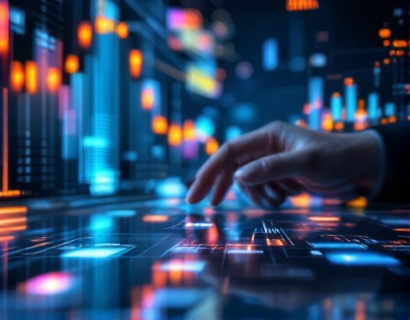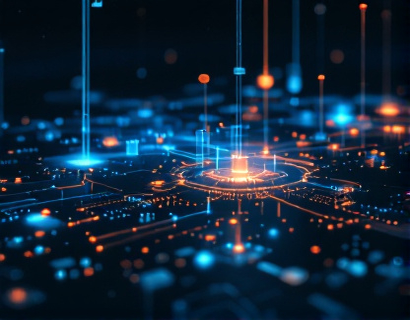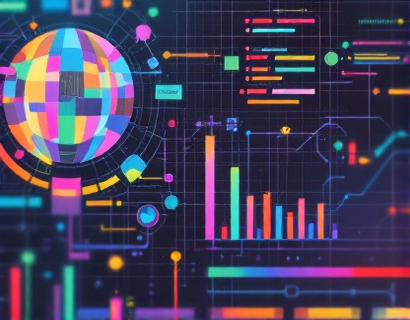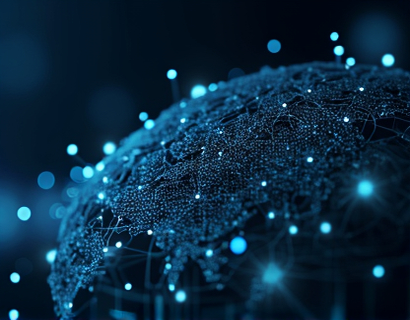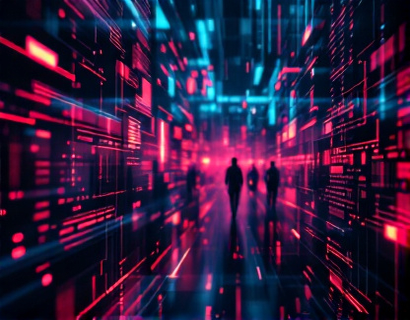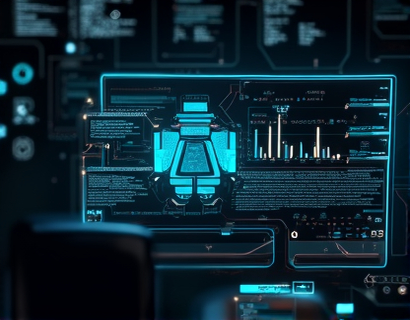AI and Crypto: Transforming Productivity in the Digital Age
The integration of Artificial Intelligence (AI) and Cryptocurrency is revolutionizing the way we approach digital productivity and efficiency. This synergy is creating next-generation solutions that are not only enhancing individual workflows but also transforming entire industries. For tech enthusiasts and early adopters, understanding the potential of AI and cryptocurrency merged applications is crucial for staying ahead in the rapidly evolving digital landscape.
The advent of AI has brought about significant advancements in various sectors, from healthcare to finance, and now, it is intersecting with cryptocurrency to create innovative tools and platforms. This article delves into how AI and cryptocurrency are merging to unlock new levels of digital productivity and efficiency, providing insights for those interested in the future of work.
Understanding AI and Cryptocurrency
To grasp the transformative power of AI and cryptocurrency, it's essential to understand each technology individually. Artificial Intelligence refers to the simulation of human intelligence processes by machines, particularly computer systems. These processes include learning (the acquisition of information and rules for using it), reasoning (using rules to reach approximate or definite conclusions), and self-correction. AI technologies such as machine learning, natural language processing, and computer vision are already making significant impacts across various domains.
Cryptocurrency, on the other hand, is a digital or virtual currency that uses cryptography for security. It operates on a decentralized network, typically a blockchain, which ensures transparency and immutability. Bitcoin, the first and most well-known cryptocurrency, paved the way for thousands of alternative coins and tokens, each with unique features and use cases. The decentralized nature of cryptocurrency eliminates the need for intermediaries, reducing transaction costs and increasing financial inclusivity.
AI in Cryptocurrency: Enhancing Security and Efficiency
One of the most significant applications of AI in the cryptocurrency space is in enhancing security. Cryptocurrency exchanges and wallets are prime targets for cyberattacks due to the high value of digital assets. AI algorithms can detect and prevent fraudulent activities by analyzing patterns and anomalies in transaction data. Machine learning models can identify suspicious behavior in real-time, providing a robust defense against hacking attempts and ensuring the integrity of the blockchain network.
AI also plays a crucial role in optimizing cryptocurrency trading and investment strategies. Algorithmic trading powered by AI can process vast amounts of data quickly, identifying trends and making informed decisions at speeds unattainable by human traders. These AI-driven trading bots can execute trades 24/7, capitalizing on market opportunities and minimizing emotional biases that often lead to suboptimal decisions.
Cryptocurrency-Powered AI Platforms
The combination of AI and cryptocurrency has given rise to platforms that leverage both technologies to offer innovative solutions. These platforms use blockchain to ensure transparency and security while employing AI to enhance functionality and user experience. One such example is decentralized finance (DeFi) platforms, which provide financial services like lending, borrowing, and trading without traditional financial intermediaries.
DeFi platforms utilize smart contracts, self-executing contracts with the terms directly written into code, to automate and enforce agreements. AI algorithms can optimize these smart contracts, ensuring they operate efficiently and securely. For instance, AI can predict market movements and adjust the parameters of a smart contract to maximize returns or minimize risks.
AI-Driven Cryptocurrency Wallets
Cryptocurrency wallets are essential for storing, sending, and receiving digital assets. Traditional wallets often lack advanced features and can be vulnerable to security breaches. AI-driven cryptocurrency wallets integrate machine learning to provide enhanced security and user-friendly experiences. These wallets can detect and prevent unauthorized access by continuously monitoring transaction patterns and user behavior.
Moreover, AI can personalize the wallet experience based on user preferences and habits. For example, an AI-powered wallet can suggest optimal times for transferring funds based on market conditions or alert users to potential scams by analyzing the context of transactions. This level of customization and proactive security measures significantly improves the overall user experience.
Blockchain and AI in Supply Chain Management
Beyond finance, the integration of AI and blockchain is transforming supply chain management. Traditional supply chains are often opaque, inefficient, and prone to fraud. By combining blockchain's transparency with AI's analytical capabilities, companies can create more efficient and trustworthy supply chains.
Blockchain provides a tamper-proof ledger for tracking goods from production to delivery, ensuring each step is recorded and verifiable. AI algorithms can analyze this data to identify bottlenecks, predict delays, and optimize logistics. For instance, AI can forecast demand based on historical data and real-time market trends, helping companies adjust their inventory and production schedules accordingly.
Additionally, AI can enhance quality control by analyzing images and sensor data to detect defects or anomalies in products. This ensures that only high-quality goods reach the end consumer, reducing waste and improving customer satisfaction.
AI and Crypto in Healthcare
The healthcare industry is another sector benefiting from the convergence of AI and cryptocurrency. Patient data security and privacy are paramount, and blockchain provides a secure and decentralized way to manage medical records. AI can analyze these records to identify patterns and predict health outcomes, aiding in early diagnosis and personalized treatment plans.
Cryptocurrency can facilitate seamless and secure transactions for healthcare services, prescriptions, and insurance claims. Smart contracts can automate these processes, reducing administrative overhead and ensuring compliance with regulatory requirements. For example, a patient's consent for data sharing can be encoded in a smart contract, ensuring that data is only accessed when specific conditions are met.
Challenges and Considerations
While the potential of AI and cryptocurrency in enhancing productivity is immense, there are challenges and considerations to keep in mind. Regulatory uncertainty remains a significant hurdle, as governments worldwide are still grappling with how to regulate these emerging technologies. Compliance with existing laws and the development of new regulations will be crucial for the widespread adoption of AI and cryptocurrency solutions.
Another challenge is the technical complexity involved in integrating AI and blockchain. Developers need a deep understanding of both technologies to create robust and secure applications. Additionally, the energy consumption of blockchain, particularly proof-of-work systems, raises environmental concerns that need to be addressed.
Future Prospects
The future of AI and cryptocurrency in transforming productivity looks promising. As technology advances, we can expect more sophisticated and user-friendly applications that seamlessly integrate these technologies. The rise of edge computing, for instance, will enable AI to process data closer to the source, reducing latency and improving real-time decision-making.
Furthermore, the development of interoperable blockchain platforms will facilitate the integration of AI services across different ecosystems. This will create a more connected and efficient digital environment, where AI and cryptocurrency work hand in hand to enhance productivity and innovation.
For tech enthusiasts and early adopters, staying informed about the latest advancements in AI and cryptocurrency is essential. By embracing these technologies, individuals and organizations can stay ahead of the curve, unlocking new possibilities and driving progress in the digital age.



